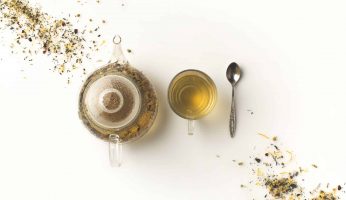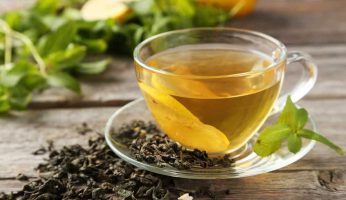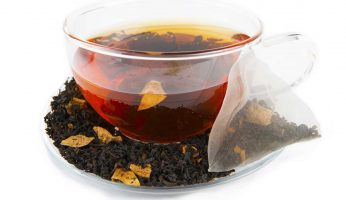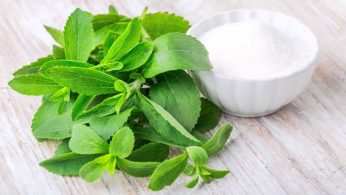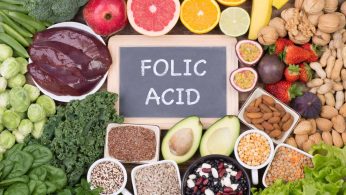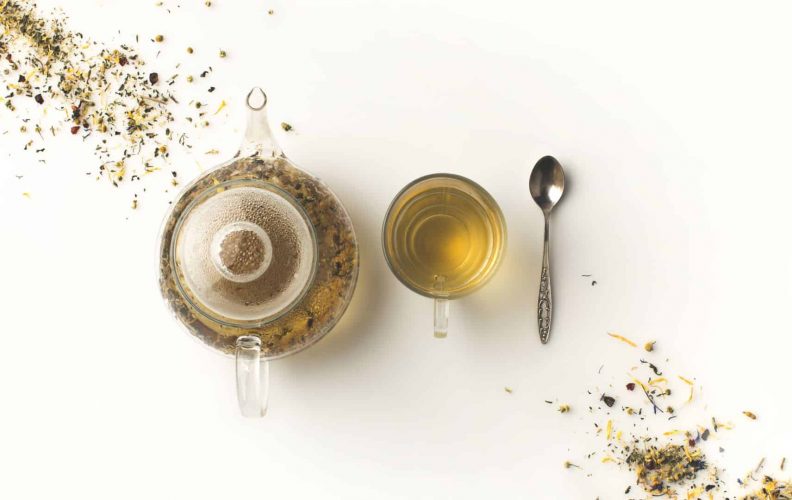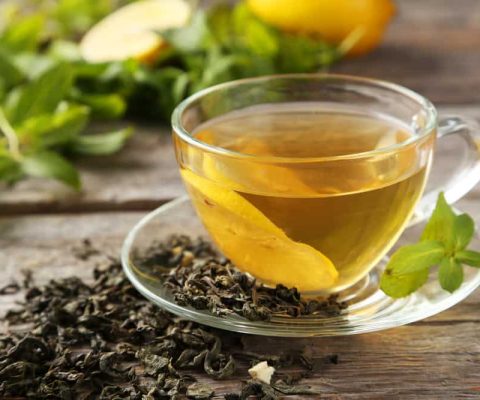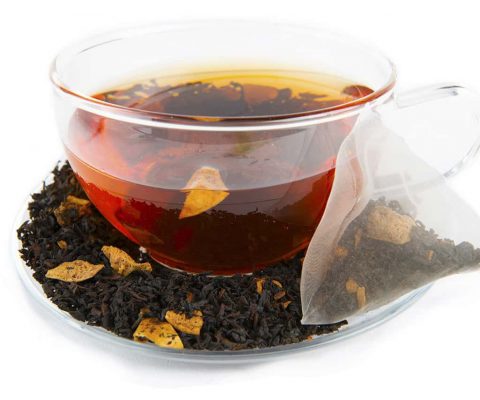Tea Time: Black Tea vs Green Tea
Disclosure: We use affiliate links and may receive a small commission on purchases.
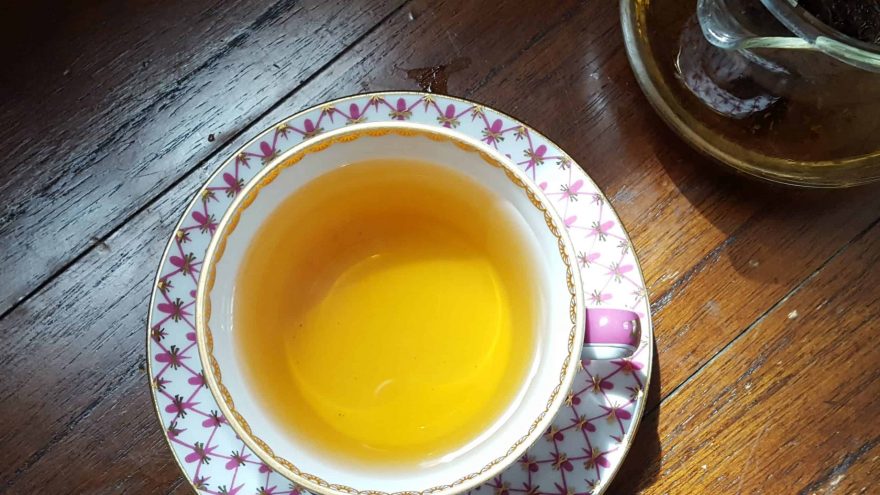 Tea Time: Black Tea vs Green Tea
thefitbay.com
Tea Time: Black Tea vs Green Tea
thefitbay.com
Ever since tea was discovered in China nearly 5,000 years ago, it has become the most popular and most traded beverage in the world. It quickly spread to all the corners of the world, over land and sea. It even sparked a revolution in America.
But as any tea drinker will tell you, there are two types of tea that you need to be familiar with. Black tea and green tea have subtly different flavors, caffeine content, and health benefits. We discuss the best black tea for you to purchase as well.
Check out this article to find out the differences in black tea vs green tea!
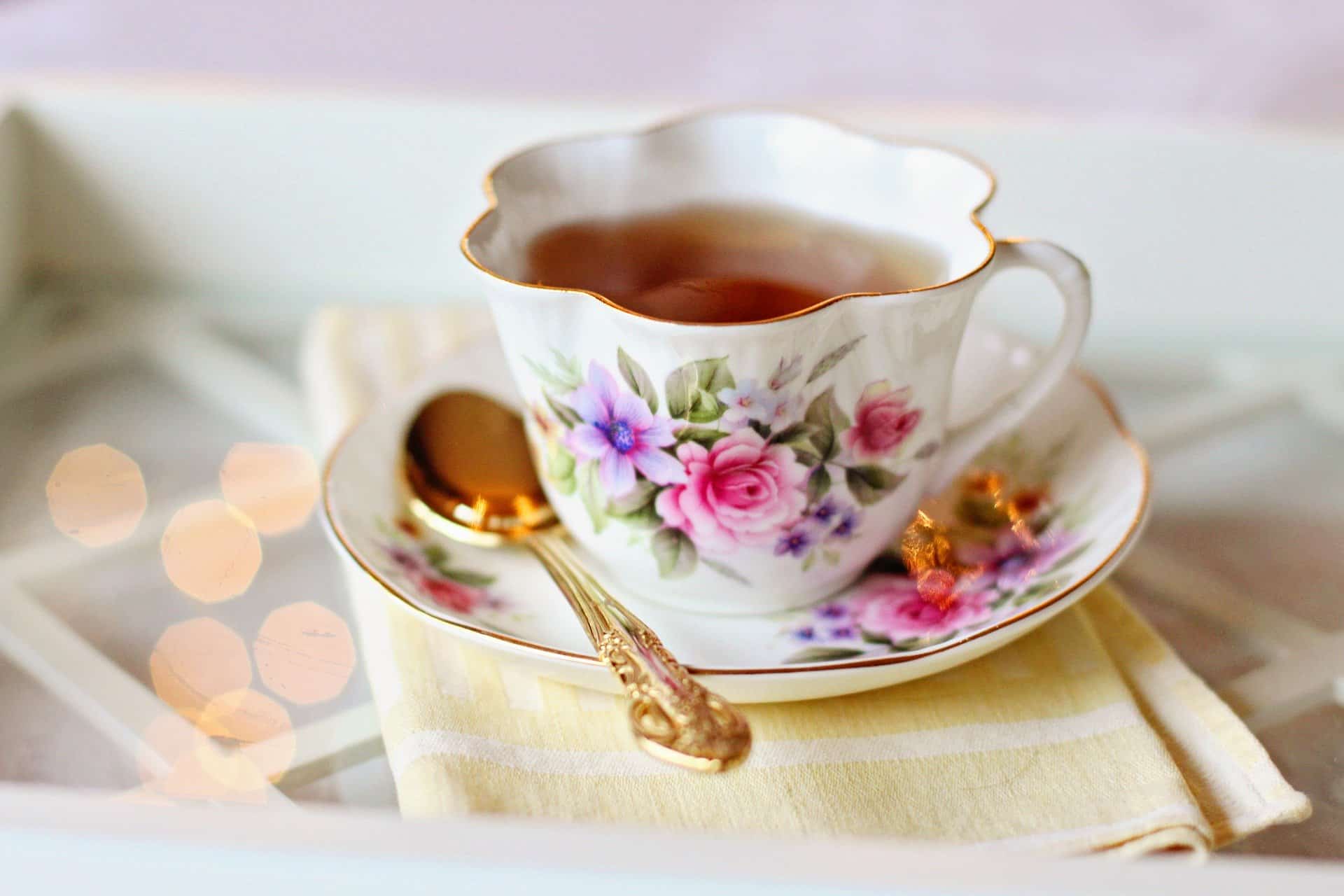
Differences and Comparison
Black tea and green tea actually come from the same leaves of a single plant (1). This plant is called Camellia Sinensis.

Because of the different ways the leaves are treated and prepared, they can produce tea of different colors and flavors when brewed.
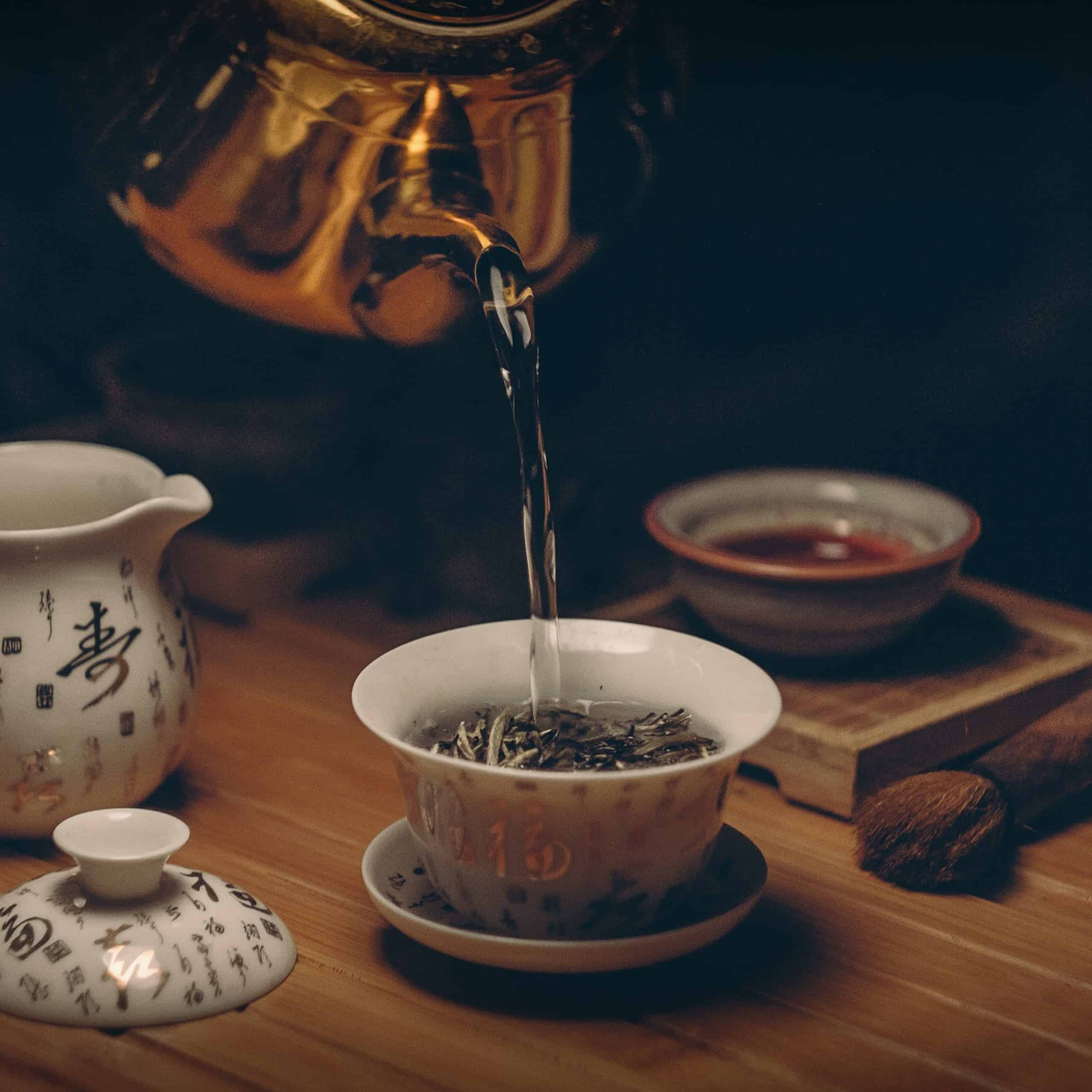
The difference between black vs green tea is due to the oxidation of tea leaves after they are harvested.
Oxidation is a natural chemical process in which molecules in the surface of the material absorb oxygen and transform. This is the same process that causes apple flesh to turn brown when exposed to air, and even causes rust to form on iron.
When black tea leaves are being prepared, they are first harvested and then withered. Next, they are crushed, rolled, and muddled to expose much of the leave to oxygen.
This oxidation process turns the leaves dark brown, similar to what you would see in an apple exposed to the air. After the leaves oxidize, they are dried and then further crushed into flakes or packaged in black tea bags.
To process green tea leaves, the harvested and withered leaves are heated through steaming or pan firing to prevent oxidation. When the leaves are prepared in this manner, it preserves the bright green color so that the green tea doesn’t brew as darkly as black tea. It also gives the green tea a fresher, milder flavor.
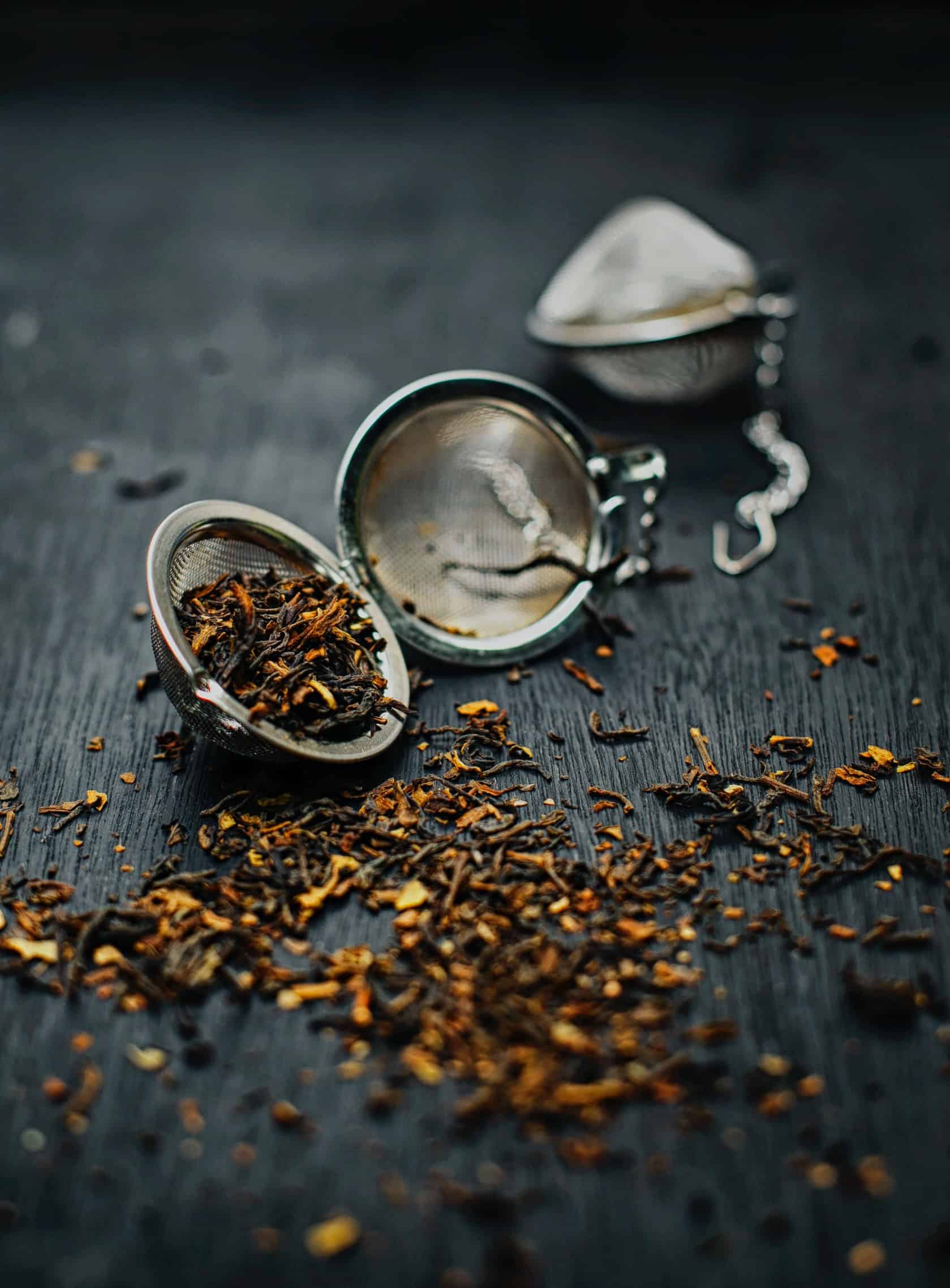
There’s actually a third kind of tea, commonly referred to as oolong tea (2), which is partially oxidized during processing. Oolong tea has a flavor and intensity between black tea and green tea.
In the following sections, we broke down the qualities you look for in the black tea and green tea so that we can compare them to each other.
Health Benefits
Black and green tea have a range of benefits for your health. Let’s look at them here.
Antioxidants
If you’ve been paying attention to health news in the last decade or so, you have surely heard about antioxidants. Antioxidants have been shown to prevent cancer, and both black tea and green tea have specific antioxidants called polyphenols. (3)
The polyphenols in black tea are called theaflavins, and the polyphenols in green tea are called catechins. Both of these can reduce the risk of cancer and cardiovascular diseases. (4)
When it comes to antioxidants, green tea has one major advantage. An antioxidant called EGCG is abundant in green tea, much more so than even in black tea.
This antioxidant has several considerable health benefits, including:
Don’t disregard the theaflavins in black tea, though. They have been shown to reduce free radical damage and increase your body’s natural antioxidant production (11).
Cardiovascular Health
Both green tea and black tea can also reduce triglycerides and bad cholesterol. (12)
The same study that discovered this also tested the polyphenols in black tea and green tea for their role in reducing arterial plaque and lowering blood pressure. Black tea and green tea are good for the heart!
Not only will black tea or green tea reduce your risk of heart attack, but also reduces the risk of stroke. (13)
Black tea theaflavins are also especially good at reducing blood vessel inflammation (14) as well as cholesterol and blood sugar levels. (15)
Weight Loss
You can also consider black tea vs green tea weight loss. Some doctors recommend black tea for managing weight because these theaflavins have been shown to destroy fat cells. (16)
As tea is practically a zero-calorie beverage, it’s an ideal drink for those of you looking to shed the pounds. Why not indulge in a delicious cup of black or green tea instead of a high-calorie soda?
Mood and Concentration
Of course, both black and green tea both caffeine. Caffeine is a stimulant, which can help you stay awake and maintain concentration. Stimulants like caffeine can increase alertness, vigilance, and reduce reaction and memory recall times.
Green and black tea can also improve your mood by helping your body release dopamine and serotonin, which create feelings of contentment. (17)
These black teas and green teas also contain a special amino acid called L-theanine. (18)
L-Theanine can keep you both relaxed and alert by stimulating neurotransmitters in your nervous system.
The effects of L-theanine combined with caffeine have been shown to be more effective than caffeine alone.
For this reason, either black tea or green tea might be a better stimulant than coffee, which does not contain L-theanine. Black tea can keep you relaxed while it keeps you awake and alert.
Health Benefits Recap
The antioxidants in green tea and black tea offer the most significant health benefits, including defense against cancer growth and cardiovascular disease. The caffeine and L-theanine also improve mood and alertness.
Risks
While black tea and green tea are generally safe beverages with little to no calories, moderate caffeine, and several health benefits, it is not entirely without risk.
Carefully consider the possible complications that are associated with tea consumption below, before brewing your next cup.
Iron Absorption Blocking
If you suffer from an iron deficiency, you might need to think twice before drinking a lot of black tea and green tea. Both kinds of tea are rich in tannins, which can hinder iron absorption in your blood. (19)
To mitigate this risk, you can take your black tea or green tea between meals, after your body has fully digested and absorbed the iron from your food.
Additionally, drinking fewer than three cups of black tea or green tea each day is generally considered safe, even for people with iron deficiencies.
Caffeine Complications
People who drink too much coffee often suffer from anxiety, stress, and restlessness. These problems are caused by the caffeine in coffee.
Black tea and green tea contain caffeine as well, so heavy tea drinkers might experience the same problems. You need to know how to compare black teas vs green tea caffeine.
Some research has found that most black tea drinkers can minimize their anxiety and stress by consuming less than 200 milligrams of caffeine per day. (20)
You will find the caffeine levels of black tea and green tea further down in this article, but in general, this means limiting yourself to two cups of black tea or six cups of green tea.
If you suffer from restlessness or other caffeine-related issues, you might consider many of the floral or herbal steeped beverages that don’t contain caffeine. Hibiscus and chamomile are two great substitutes for hot black tea.
Sleep Cycle Interruptions
Let’s be honest—most people drink black tea or coffee to stay awake. However, consuming too much caffeine can have lasting repercussions on your sleep cycle.
Caffeine has been shown to block the brain’s production of melatonin. (21)
Melatonin is a hormone that aids in restful, scheduled sleep, so disrupting it can lead to a minor sleep disorder.
It’s important to consider your caffeine intake from all sources, especially if you are having trouble sleeping at night. Switching to non-caffeinated beverages can have a drastic improvement in your sleep schedule.
Stomach Upset
The same tannins in tea that inhibit iron absorption can also inflame and irritate your stomach lining. (22) This is especially the case if you drink a lot of black tea or green tea on an empty stomach.
You can reduce this kind of nausea and upset stomach by drinking black tea or green after meals, or by adding milk and sugar to your black tea or green tea. Proteins and carbs can bind to the tannins to make them less potent.
Heartburn or Acid Reflux
Acid reflux is caused by an open valve between your stomach and esophagus. Studies suggest that caffeine can relax that valve and make your acid reflux worse.
Caffeine also increases the overall acid content in your stomach by increasing acid production by your body. (23)
If you suffer from heartburn or acid reflux, you should perhaps consider taking a few days without coffee or black tea to see if your condition gets better without daily caffeine.
Recurrent Headaches
If you have a severe caffeine habit, drinking multiple cups of coffee or black tea each day, you may develop associated headaches.
This varies from individual to individual, but for some people, as little as 100 milligrams of caffeine per day can cause drastic headaches. (24)
However, in other cases, moderate caffeine consumption can relieve certain kinds of headaches.
Caffeine Dependence
Much like other addictive substances, your body can become dependent on caffeine and abruptly cutting it out of your diet can cause complications.
The most common complication from caffeine withdrawal is fatigue, which you would expect if you drink black tea to stay awake. Other complications include headaches, heart racing, and irritability. (25)
Additional Concerns for Pregnant Women
If you are a pregnant woman, you also need to consider cutting down on caffeine, which may be linked to low birth weight or premature delivery or even miscarriage. (26)
Obstetricians and gynecologists recommend keeping your caffeine consumption under 200 milligrams per day while pregnant to avoid these problems.
Risk Recap
The main concerns with drinking black tea or green tea come from caffeine. Caffeine can cause anxiety and restlessness, and even headaches.
It also can cause nausea and heartburn. Dependence on caffeine can become a major issue, and caffeine should be only used in moderation by pregnant women, if at all.
Dosage
A typical cup of tea is about 6 ounces of hot water. If you are steeping loose leaf black tea, you will want about ¾ of a teaspoon of tea leaves. For green tea, you might want a little more, perhaps a teaspoon of tea leaves.
Of course, most Americans steep their tea with tea bags. Consider that a tea bag is sized for a 6 ounce serving of tea, so if you are preparing a teapot or larger vessel of tea, use multiple bags as necessary.
Calories
Tea leaves, whether black or green, contribute a negligible amount of carbohydrates to the hot water that you brew them in. In fact, a 6-ounce cup of tea, all by itself, contains a single calorie. This is true for both black and green teas.
However, very few people drink tea by itself. Most tea drinkers prefer to add sugar or some other sweetener. And although it might not be popular in America, many tea drinkers around the world also add milk to their tea.
Also, if you are concerned about calories, stay away from bottled teas. Bottled teas are loaded with sugar and calories, sometimes as much as 150 calories per serving! Check the labels before consuming bottled beverages like this.
Sweeteners
As a simple way to estimate the calories that you are adding to your tea through sugar, a sugar packet contains approximately 3 grams of sugar, which adds 11 calories. A teaspoon of honey is about 20 calories.
Artificial sweeteners usually contain much fewer calories, or even zero calories. The most common artificial sweeteners are listed here with their sweetness and calorie content:
Milk
If you like to add milk to your tea, this is a healthier option. Milk adds calories, but also adds other nutrients. Here is a breakdown of the calories in various types of milk:
- 1 fluid ounce half and half: 39 calories, 30 from fat.
- 1 fluid ounce whole milk: 18 calories, nine from fat.
- 1 fluid ounce skim milk: 10 calories, none from fat.
However, milk also adds vitamin A, calcium, and vitamin D.
It’s better to use real milk than those powdered creamers, for sure. A teaspoon of powdered creamer adds 10 calories, but none of the vitamins or calcium that you get from milk.
Caffeine Level
An 8-ounce cup of black tea can have up to 109 milligrams of caffeine, depending on how long it’s steeped. This is almost as much as an equivalent cup of coffee. If you steep the tea for less time, you can absorb less caffeine.
Green tea has about a third of this amount of caffeine, with about 35 milligrams per 8 ounces cup of tea.
Pros and Cons
Both black and green tea offer considerable health benefits. The polyphenols in these teas reduce the risks of cancer and cardiovascular disease.
The antioxidants in green tea are even more potent and can protect from liver disorders and Alzheimer’s disease.
The calming effects of L-theanine and the increased concentration and alertness of caffeine are also perhaps the biggest reasons why people love to drink tea all over the world.
However, caffeine also can cause many serious problems, so take it in moderation.
Headaches, nausea, and anxiety are some of the biggest concerns with heavy caffeine consumption. Also, caffeine dependence can lead to further issues, and pregnant women have additional concerns with caffeine intake.
Summary
Tea has been a popular beverage for most of human history, and for good reasons. It’s cheap, easy to prepare, and has many health benefits.
If you aren’t concerned about your caffeine intake, go ahead and enjoy whichever tea you like best. Green tea has the best antioxidants for reducing risks of cancer, but black tea has the edge on reducing cardiovascular problems and blood sugar levels with its potent theaflavins.
However, if you are trying to limit your caffeine intake, whether pregnant or simply trying to avoid anxiety and headaches, then green tea is a better choice for you. You can drink three cups of green tea without consuming as much caffeine as you would get in one cup of black tea or coffee.
We hope you learned something from this article, and would love it if you would share it with your friends and family. We believe in the power of healthy eating and drinking and the ability to share this power on social media.
Of course, if you have any other questions or suggestions—maybe your favorite low-calorie sweeteners or herbal teas—please let us know in the comments!

